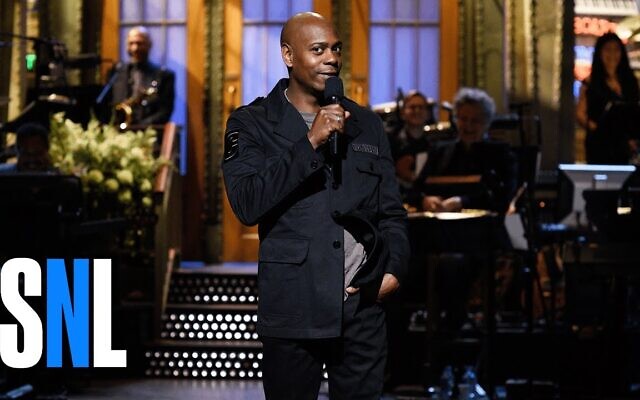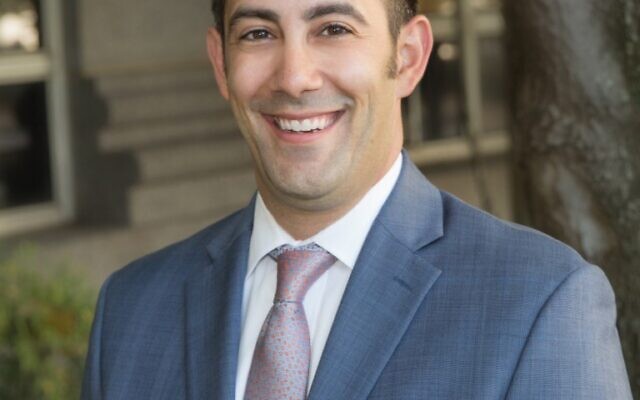Did Dave Chappelle Go Too Far?
When does comedy cross the line? Did Chappelle push the limits of comedy too much in his controversial monologue on "Saturday Night Live"?

Dave Chappelle’s recent comedy routine on “Saturday Night Live” (SNL) about Ye, the artist formerly known as Kanye West, the Jewish community and Hollywood power brokers has been criticized by many since Chapelle’s appearance on the NBC late night show.
Jonathan Greenblatt, chief executive officer of the Anti-Defamation League tweeted, “We shouldn’t expect @DaveChappelle to serve as society’s moral compass but disturbing to see @nbcsnl not just normalize but popularize #antisemitism. Why are Jewish sensitivities denied or diminished at almost every turn? Why does our trauma trigger applause?”
Dov Wilker, the regional director for American Jewish Committee Atlanta, acknowledged comedians have greater leeway in what they can say, though he understands the concern in the Jewish community, particularly during a time when antisemitism is on the rise.

Wilker pointed to three key takeaways he found from Chappelle’s monologue. First, he challenged Chappelle’s claim that Jews blame antisemitism on Black Americans. “Particularly at a time when both groups should be united, this statement is simply false and divisive,” Wilker said. Second, Chappelle’s contention about Jewish control of Hollywood plays into the centuries-old trope about Jews. “While many Jews are in prominent positions, they are not all sitting in a room controlling what happens,” said Wilker. Third and probably most important, he added, “The impact of social media should not be taken lightly.” The posts and comments about Chappelle’s stand-up routine are the most concerning, according to Wilker.
Longtime Atlanta funnyman Jerry Farber believes that Chappelle went too far; yet at the same time, he believes some in the Jewish community need to be conscious of their own words. Now living in Columbus, Farber hopes to organize a town hall gathering for “people of good faith” to have discussions of substance about topics that matter regarding religion and race.

“Isn’t it ironic 60 million casualties happened in World War II and now we are allies with Japan and Germany? My hope is that if we can have more conversations instead of just shutting down people like Chappelle, it can be more productive long-term,” shared Farber.
A political activist for many years, Farber does not believe Chappelle is antisemitic, but that his stand-up routine, while inappropriate, may have been created to provoke a reaction, much like Lenny Bruce did in the 1960s. “Chappelle is at the top of his game and maybe wanted to do some saber rattling,” said Farber.
Cheryl Feingold Dorchinsky, executive director of the Atlanta Israel Coalition, a non-partisan organization formed to combat antisemitism and anti-Zionism, said, “The truth is Chappelle may be right. If Ye had apologized, there would have been less of an impact on his career. Instead, he continued, causing many to question his mental health. It is not acceptable, however, to normalize hate toward the Jewish people, as Chappelle did in his monologue. He crossed the line.”

Feingold Dorchinsky, who said she does not support cancel culture, does not endorse hate speech either. She recognized the fine line comedians must walk and mentioned that Jews are not the first and probably will not be the last minority group Chappelle insults. Her recommendation is that people write and call “SNL” with their comments and concerns. Page Six reported that a source at the late-night show indicated that Chappelle did a fake monologue during the dress rehearsal because he did not want Lorne Michaels, the show’s creator, or anyone else to know what his real monologue would be for the live performance.
On the national front, comedian Jon Stewart, a good friend of Chappelle’s, encouraged a productive conversation and further dialogue during his appearance on “The Late Show with Stephen Colbert.” Elaborating on his point of view, Stewart said, “I don’t believe that censorship and penalties are the way to end antisemitism or to gain understanding. I don’t believe in that. I think it’s the wrong way to approach it.”
In an interview with The Hollywood Reporter to promote his upcoming book, “The Comedians in Cars Getting Coffee Book” (Simon & Schuster), Jerry Seinfeld responded to questions about Chappelle’s routine. “I did think the comedy was well-executed, but I think the subject matter calls for a conversation that I don’t think I’d want to have in this venue. It provokes a conversation which hopefully is productive,” said Seinfeld. When asked if he would have that conversation with Chappelle personally, as a friend, he replied, “I don’t have a close relationship with him. We’re friends and it’s not a close relationship.”
During the 15-minute monologue, Chappelle specifically touched on a myriad of subjects, including Donald Trump, privilege, Ye’s tweet about going Def Con3 on the Jews, Adidas dropping Ye as a result of his words, Kyrie Irving and, toward the end, mentioned, “It shouldn’t be this scary to talk about anything.”
Chappelle’s full stand-up routine can be seen at https://www.nbc.com/saturday-night-live/video/dave-chappelle-stand-up-monologue/NBCE388613516.
- News
- Community
- Debbie Diamond
- Dave Chappelle
- Saturday Night Live
- Kanye West
- Jonathan Greenblatt
- Anti-Defamation League
- Dov Wilker
- American Jewish Committee
- Antisemitism
- Jerry Farber
- Lenny Bruce
- Cheryl Feingold Dorchinsky
- Atlanta Israel Coalition
- Lorne Michaels
- Jon Stewart
- The Late Show with Stephen Colbert
- The Hollywood Reporter
- Jerry Seinfeld
- The Comedians in Cars Getting Coffee Book
- Donald Trump
- Def Con3
- Adidas



comments